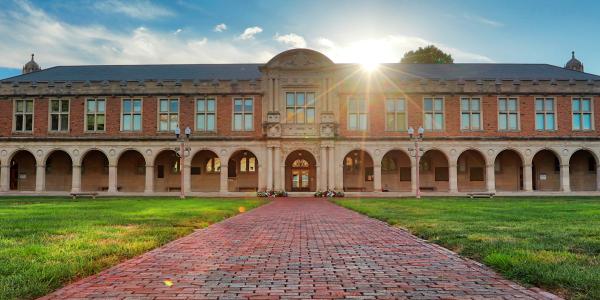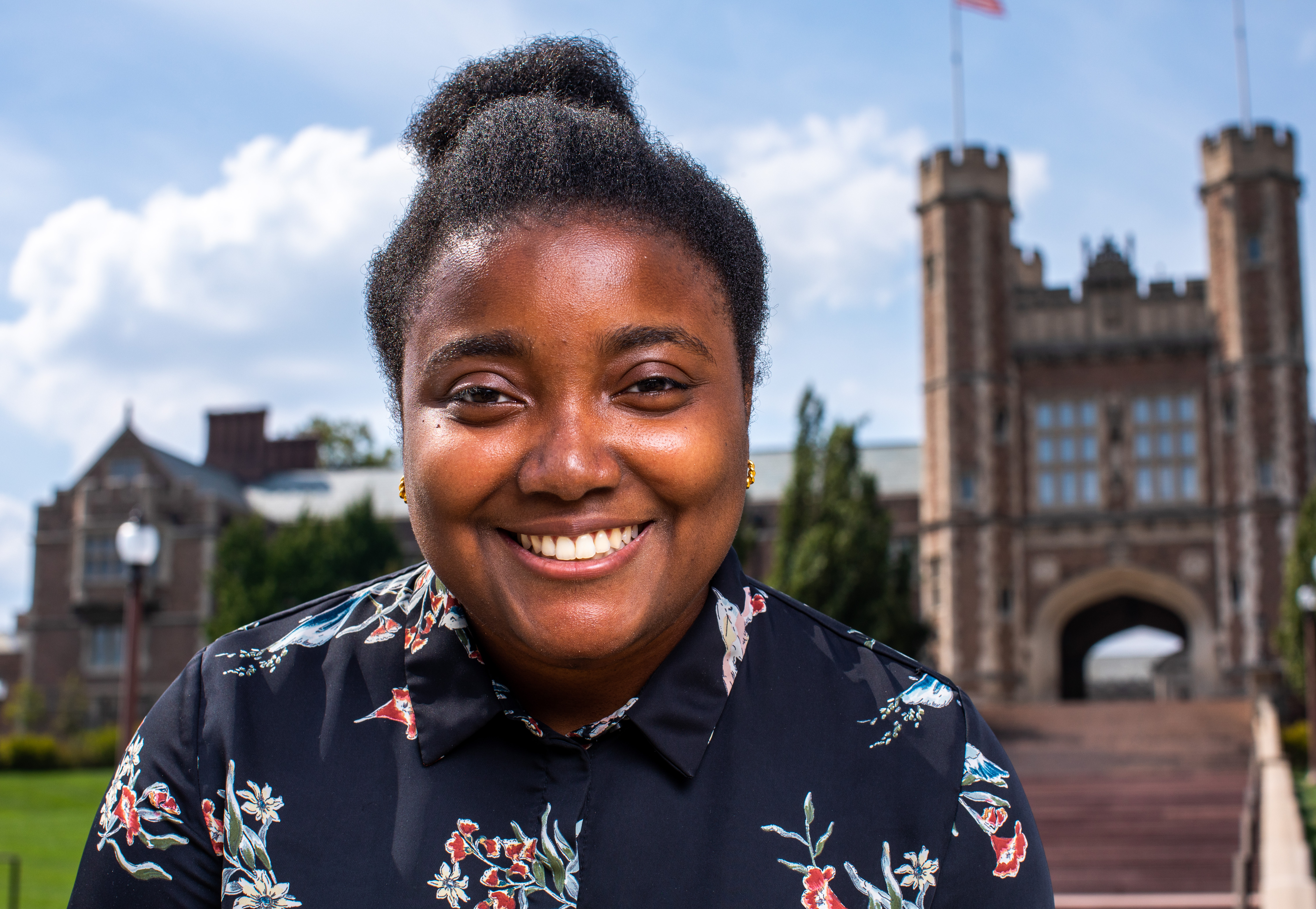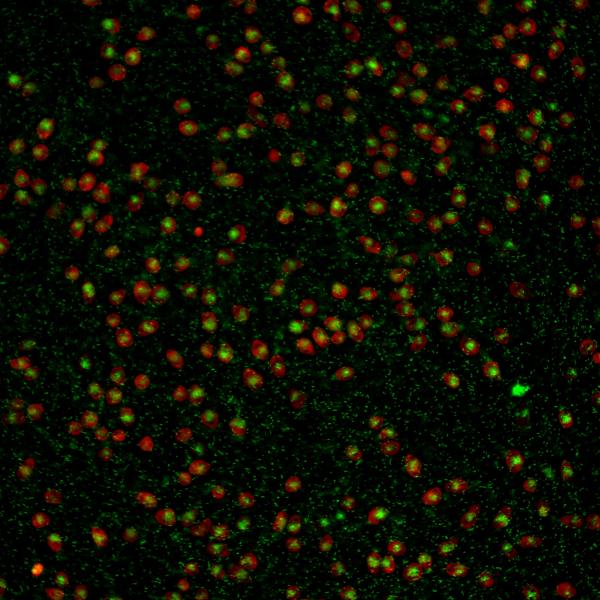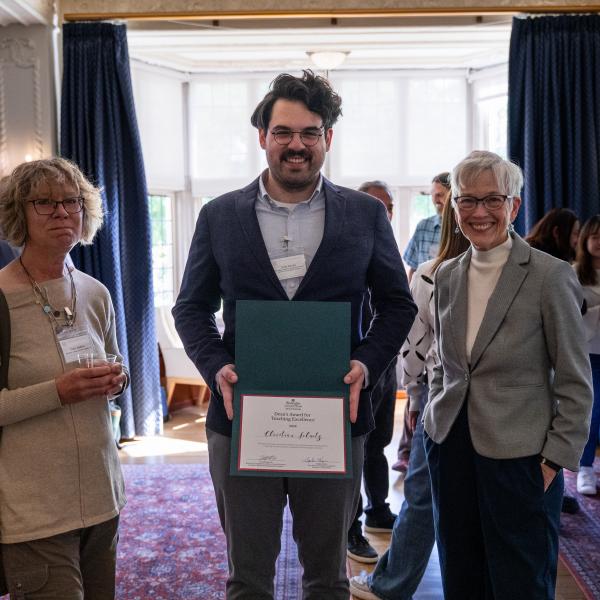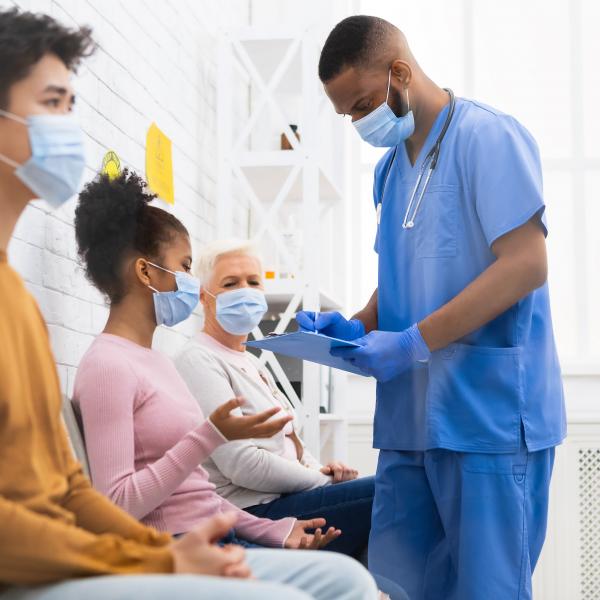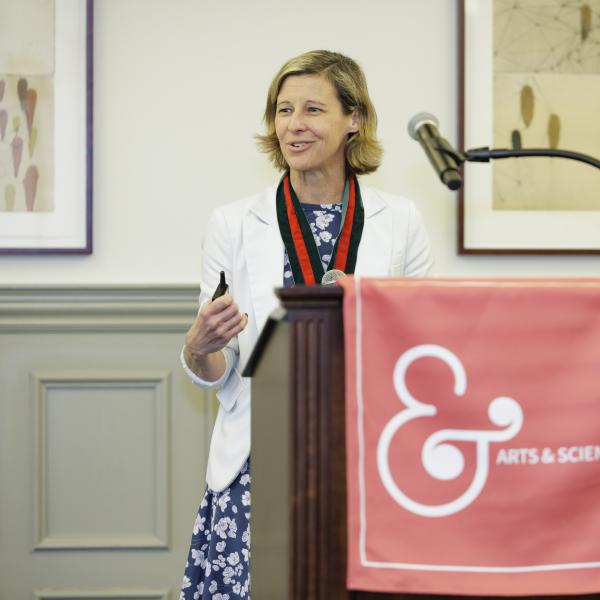Ahead of her speech at the Arts & Sciences Recognition Ceremony, graduating senior Helen Webley-Brown shares memories from her time at WashU and words of wisdom for her classmates.
Going into their last week as Washington University students, Helen Webley-Brown wants her classmates to reflect on the community that they have built over the last four years. Webley-Brown will deliver the student address at the Arts & Sciences Recognition Ceremony later this week. Originally from the United Kingdom, she is a political science major with a minor in anthropology. During her time at WashU, Webley-Brown was a Danforth Scholar and a Civics Scholar. In the fall, she will begin MIT’s doctoral program in political science.
In this Q&A, Webley-Brown talks about what she will miss about WashU, taking an acting class a senior, and words of wisdom for her classmates.

Do you have a favorite WashU memory?
During orientation — before our first year here even began — I went to Camp Miniwanca with the other incoming Danforth Scholars. It was a few days of classic, kind of cheesy team building. What really stood out to me is that classic WashU thing of knowing people by name and story. At orientation, I felt like I was really seeing that idea in action. People I had never met before were telling me very personal stories and making me feel like I could open up to them very early on in knowing them.
What has WashU taught you to appreciate?
Being an international student, I really learned to appreciate coming to a new place where I could get to know people who come from really different backgrounds. It taught me a lot about assumptions I had. A kind of silly example that really stood out to me was Boxing Day. In the U.K., if you celebrate Christmas, you probably also celebrate Boxing Day. When I came here, I found out that that’s a British thing. Discovering those differences has taught me to appreciate different perspectives.
What are you going to miss most after you graduate?
I’ve loved having a main campus where you can walk from one end to another and it’s impossible not to see at least one person you know. I’m going to miss the Danforth Scholars community and the Department of Political Science, where some of my favorite people on the planet work. I’m going to miss just being able to do the liberal arts thing. It’s not something we have back home, and I’ve really enjoyed being able to take classes in different schools and departments.
Do you have a favorite class that you took while a student in Arts & Sciences?
I actually took my favorite class this last semester! I signed up for Jeffery Matthews’ “Fundamentals of Acting” class. It’s funny — I can’t act at all. None of us were professional actors. We just wanted to try something new and fun. The first thing Jeffery said to us was that we weren’t a class, we were an ensemble. It was a great way to get out of my comfort zone and have three hours a week where we could do crazy things like scream at each other.
What does WashU mean to you after four years?
WashU feels like a place where opportunity is possible. As I’m writing my speech, I’ve been thinking about how I have really been able to make WashU a home. I didn’t do that by myself. There were a million and one people who helped me do that. I met so many people, like the political science faculty and my colleagues in the Danforth Scholars program, who were excited to share their knowledge about so many different things. It’s just the ultimate privilege to be part of this community.
What would you like to pass on to your classmates as you look past graduation?
One of things I want to say in my speech on Thursday is that while we could never have imagined that the last two years would end up going how they did, time didn’t stand still. It wasn’t a lost two years. We were still here, doing amazing things. We found new ways to keep together, even when that meant being apart. It wasn’t lost time because it transformed us in a way that made us stronger in the end. In a way, the pandemic was a crash course in something that we’re about to do anyway, in moving away from each other and onto the next step.
